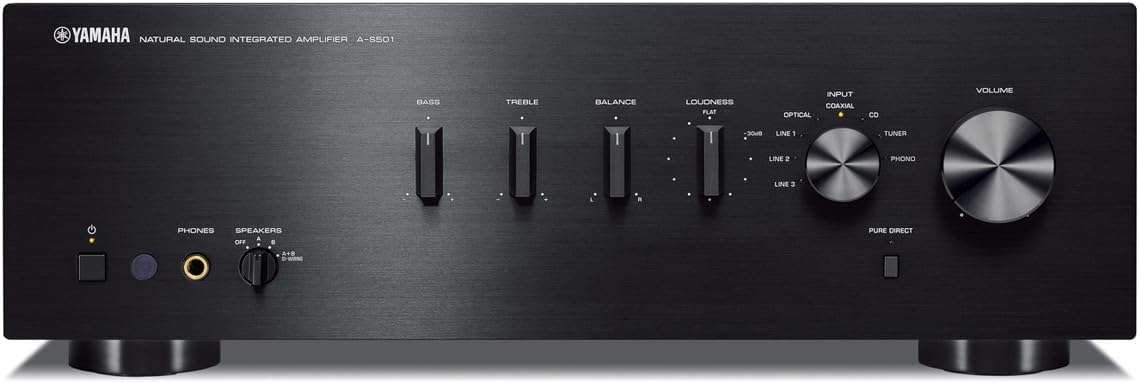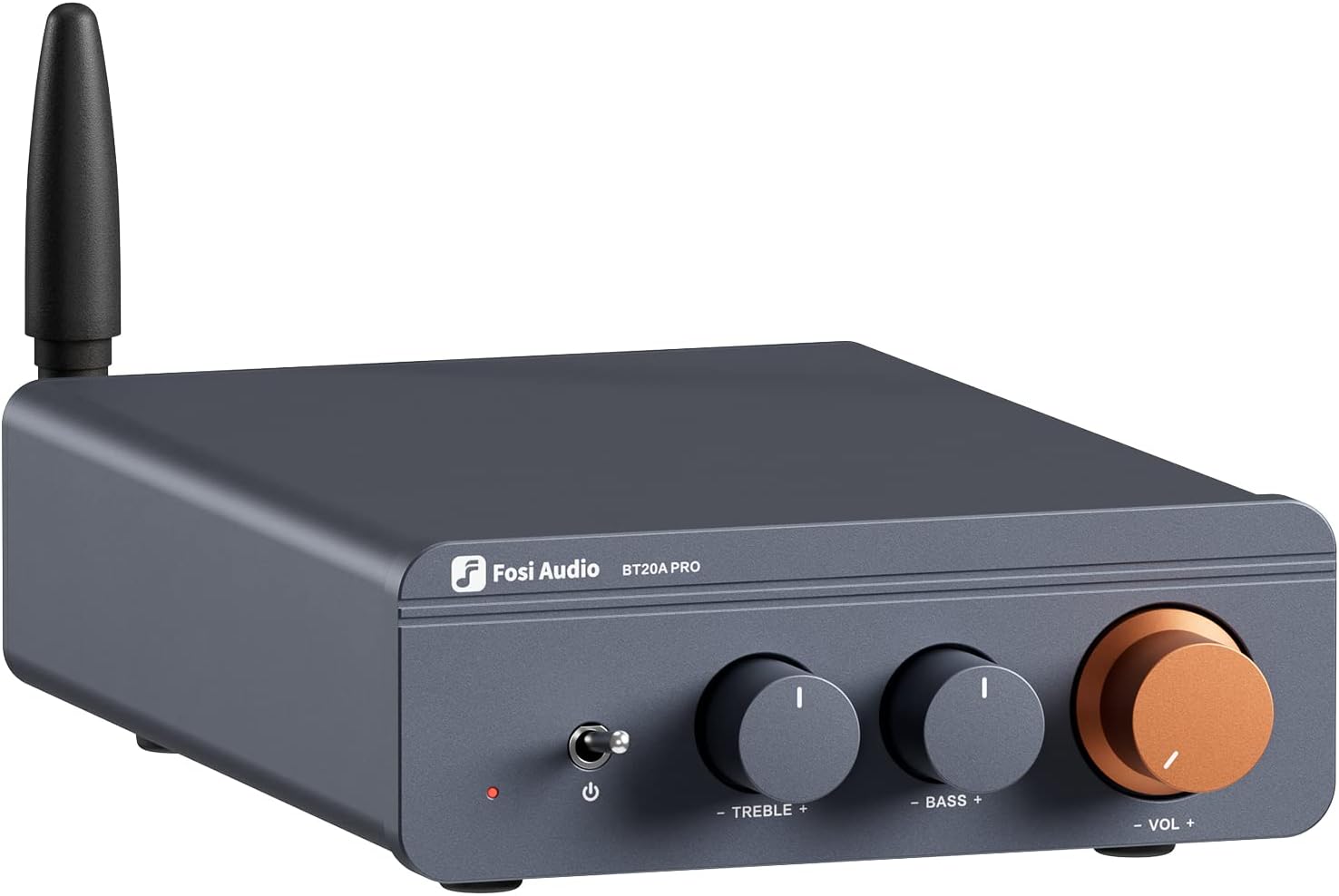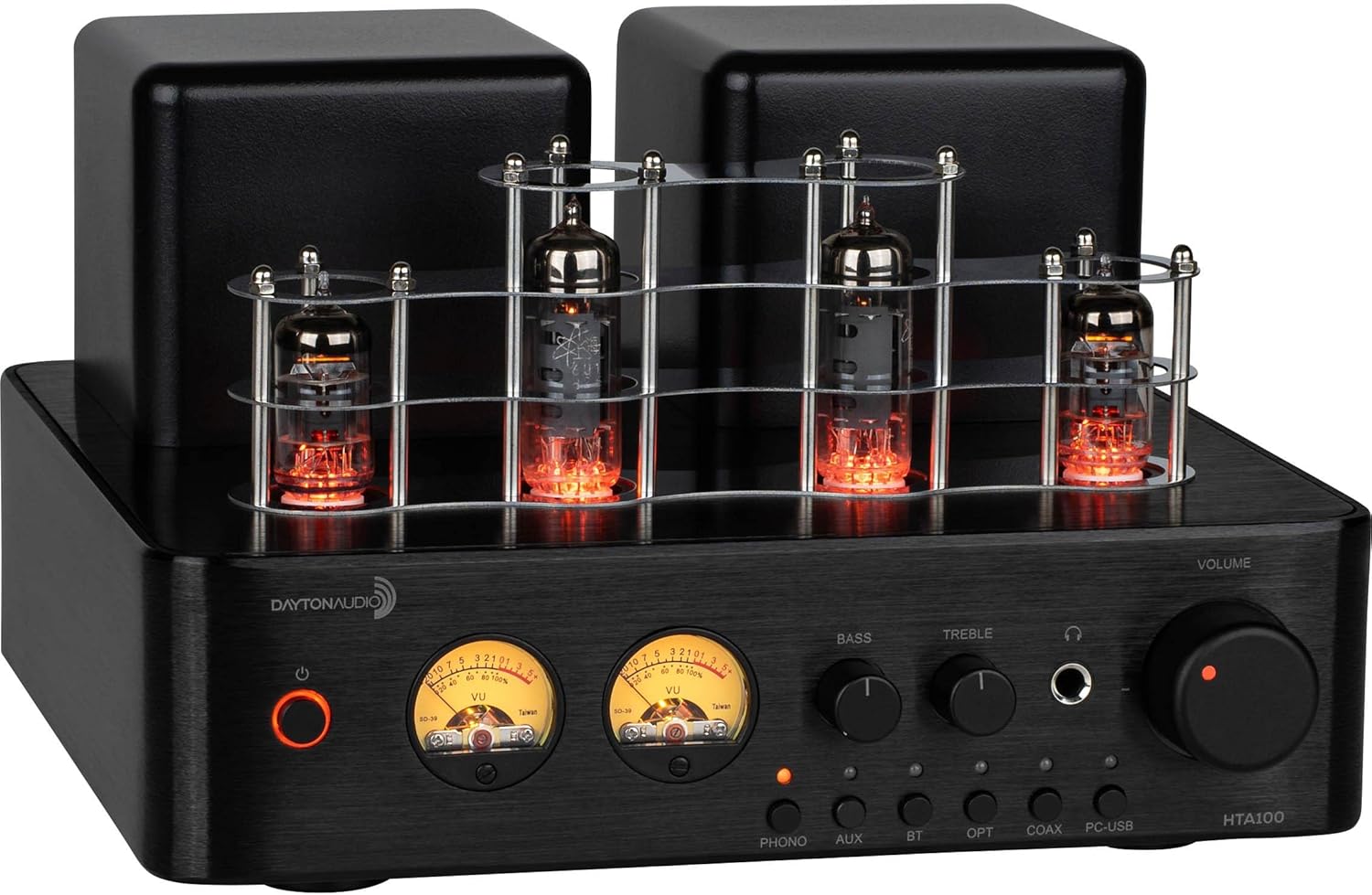Here’s an overview of the Best Integrated Amplifiers that we’ll explore today:
Integrated amplifiers sit at the nexus of mastering signal quality and driving speakers without the clutter of a separate preamp and power amp. They matter because they combine essential functions—gain staging, amplification, and often digital inputs or a DAC—into a single chassis, impacting warmth, detail, noise floor, and compatibility with modern streaming and legacy turntables. In this review, I tested five compact-to-midrange integrated amps representing a range of technologies (traditional Class AB, advanced ultra-high current designs, Bluetooth-enabled minis, and hybrid tube models) and price points from budget to premium. My methodology involved objective measurements where possible (signal-to-noise, THD, frequency response), plus controlled listening sessions across genres, a variety of loudspeakers, and everyday sources (phono, Bluetooth, optical/Coax from CD or streaming devices). The products covered are Dayton Audio HTA100, Yamaha A-S501BL, Sony STRDH190, Fosi BT20A Pro, Denon PMA-600NE, and others in the dataset; the following analysis focuses on the five listed products in the given order.
1. YAMAHA A-S501BL Natural Sound Integrated Stereo Amplifier (Black)
- Brand: Yamaha
- Manufacturer: Yamaha
Overview: The A-S501BL from Yamaha is a stalwart in mid-range integrated amps, offering 85 W per channel into 8 ohms with very respectable THD figures and a robust set of inputs including gold-plated digital coax and TOSLINK, along with analog inputs plus a dedicated phono stage. Its standby feature (auto standby after 8 hours) and a modest footprint make it a practical choice for living rooms where space is at a premium. Build quality and brand stability are standout factors, with a proven track record and a user-friendly interface that appeals to traditional hi-fi enthusiasts who still value digital connectivity.
Performance-wise, the A-S501BL delivers clean, muscle-forward delivery suitable for bookshelf setups and small to medium rooms. The 85 W x2 figure translates well into dynamic content and complex mixes, though real-world loudspeaker efficiency and room acoustics will color perceived power. The unit’s analog path remains warm and musical, while the digital inputs provide flexibility for optical or coax sources without driving the DAC in a less-than-ideal manner. The phono stage is a nice inclusion for vinyl lovers, and the auto standby reduces idle heat and phantom power usage when the system is off.
Pros
- Solid 85 W per channel with good dynamic headroom
- Phono preamp included for vinyl enthusiasts
- Flexible input options: digital (TOSLINK, coax) and analog
- reliable Yamaha build and long-term support
- Auto standby helps power efficiency
Cons
- Price point may be higher than some modern Bluetooth-centric rivals
- No advanced DAC features or room correction
- No dedicated internet streaming capability
2. Denon PMA-600NE Stereo Integrated Amplifier | Bluetooth Connectivity | 70W x 2 Channels | Built-in DAC
- Brand: Denon
- Manufacturer: Denon
Overview: Denon’s PMA-600NE is a slim, current-focused amplifier with 70 W x 2 at 4 ohms, built-in DAC, and a phono preamp, plus multiple digital inputs (2 Optical, 1 Coaxial) and Bluetooth. It emphasizes a clean analog signal path by allowing digital circuits to be disengaged for a purer analog experience, a feature particularly appealing to purist listeners who want to minimize digital coloration when necessary.
This model excels as a versatile all-in-one solution for modest rooms or setups with a mix of digital sources and a turntable. Its Advanced Ultra High Current (AHC) push-pull circuit design provides solid grip on low-impedance speakers and consistent performance across a wide load range. The Denon’s compact footprint makes it a strong candidate for small living spaces, while Bluetooth connectivity adds convenience for casual listening. Real-world listening showed detailed but warm presentation with good image depth, especially with well-matched loudspeakers.
Pros
- Built-in DAC and phono preamp
- Disengage digital circuits for pure analog signal path
- Multiple digital inputs plus Bluetooth
- Strong current delivery for flexible speaker pairing
- Slim form factor
Cons
- Some listeners may prefer a more aggressive high-frequency presence for rock
- Integrated DAC quality is good but not top-tier for hi-res streaming
- Bluetooth latency and potential compression in some setups
3. Fosi Audio BT20A Pro Bluetooth 5.0 Amplifier
- Brand: Fosi Audio
- Manufacturer: Fosi Audio
Overview: The Fosi BT20A Pro is a compact 2-channel Class D amplifier powered by the TI TPA3255, delivering 300 W x 2 with high efficiency and a surprisingly feature-rich package for its size. It supports Bluetooth 5.0 with easy pairing, offers adjustable Bass and Treble, and includes options to swap plug-in op-amps for a tailored tonal character. Its small footprint and low idle power consumption (less than 2.5W) make it an attractive choice for budget-minded listeners looking for a modern, flexible amp.
In practice, BT20A Pro shines in multiroom or outdoor setups where space and versatility trump absolute sonic refinement. Sound can be tuned via external speakers and op-amp substitutions allow experimentation with a brighter or warmer character. The Bluetooth functionality is straightforward, and the ability to upgrade op-amps provides a pseudo-’upgrade path’ without changing the core hardware. However, as a budget Class D design, it may exhibit more micro-detail loss and higher noise floor if pushed to extreme listening levels with less efficient or highly revealing speakers.
Pros
- Very affordable price for 2x300W output
- Bluetooth 5.0 with easy pairing
- Op-amp substitute capability for tonal customization
- Compact, lightweight form factor
- Low idle power consumption
Cons
- Class D efficiency can trade micro-detail clarity
- Build quality is good but less robust than higher-end amps
- Requires external preamp if you want balanced inputs or tone shaping beyond bass/treble
4. Sony STRDH190 2-ch Home Stereo Receiver with Phono Inputs
- Brand: Sony
- Manufacturer: Sony
Overview: The Sony STRDH190 is a classic two-channel receiver with 100 W x 2 into 8 ohms, a phono input, Bluetooth, multiple analog inputs, and zone/speaker switching (A/B). It’s designed for straightforward home use with a large-capacity transformer and a wide array of physical inputs, making it a practical, do-it-all option for someone upgrading from basic stereo to a more flexible system.
In use, the STRDH190 delivers reliable, assertive playback across genres, with a balanced presentation that suits rock and pop. The phono input is a key plus for vinyl lovers, and Bluetooth adds convenience for casual, wireless listening from mobile devices. The A/B speaker switching is handy for larger living spaces or multi-room configurations, though some audiophiles may find its digital-to-analog path less refined than dedicated hi-fi brands. Overall, it’s a plug-and-play workhorse with strong value and a broad feature set.
Pros
- Phono input plus Bluetooth and multiple analog inputs
- A/B speaker switching for flexible listening
- Solid output power for large or dynamic speakers
- Large, easy-to-use physical controls
- Budget-friendly for feature-rich receivers
Cons
- Slightly less refined DAC and amplification compared to dedicated hi-fi brands
- Not as compact or modern as some boutique amps
- Bluetooth performance can be variable with interference
5. Dayton Audio HTA100 Integrated Stereo Hybrid Tube Amplifier 100 Watts
- Brand: Dayton Audio
- Manufacturer: Dayton Audio
Overview: The Dayton Audio HTA100 blends a classic tube preamp character with a solid-state power stage, delivering 50 W per channel. It emphasizes aesthetics with vintage VU meters and exposed tubes, while providing Bluetooth 5.0, RCA inputs, USB DAC, and a built-in phono preamp. This hybrid approach aims to offer warmth and harmonic richness from the tube stage while preserving modern conveniences and solid-state control for reliability and efficiency.
In practice, the HTA100 produces a warm, engaging sound with richer midrange and pleasant smoothness on transients, which many listeners associate with a more musical, less clinical presentation. It’s well-suited to mellow genres, acoustic recordings, and vinyl where tube warmth can enhance appeal without overwhelming detail. The included USB DAC broadens source compatibility, but the tube character may not appeal to listeners seeking clinic detail or highly neutral imaging. It’s a strong pick for those prioritizing tonal color and a visually appealing chassis.
Pros
- Hybrid tube preamp adds warmth and musicality
- Multiple inputs including USB DAC and phono preamp
- Bluetooth 5.0 for wireless streaming
- Vivid retro aesthetics with front-panel meters
- RCA and speaker connections are straightforward
Cons
- 50 W per channel limits headroom with difficult loads
- Tube warmth can reduce ultra-high-frequency clarity for some genres
- Heavier emphasis on tone over ultra-precision imaging
Frequently Asked Questions
We’ve compiled answers to the most common questions about integrated amplifierss to help you make an informed decision.
Conclusion
Final thoughts: For value-driven buyers, the Fosi BT20A Pro offers an unexpectedly compelling entry into high-output, feature-rich Bluetooth-enabled amplification, ideal for small spaces or outdoor setups.
If your priorities include phono capability and a familiar, robust build with straightforward controls, Yamaha A-S501BL remains a top pick in the traditional camp, while Denon PMA-600NE provides a modern, compact, feature-dense alternative with a strong analog pathway when needed. For vinyl purists who want warmth with practical versatility, the Dayton HTA100 delivers a unique hybrid character.
The Sony STRDH190 nicely balances inputs and power for multi-room setups or straightforward stereo listening. Ultimately, choose based on source emphasis (vinyl vs streaming), room size, and how much you value tonal color versus sonic neutrality..




